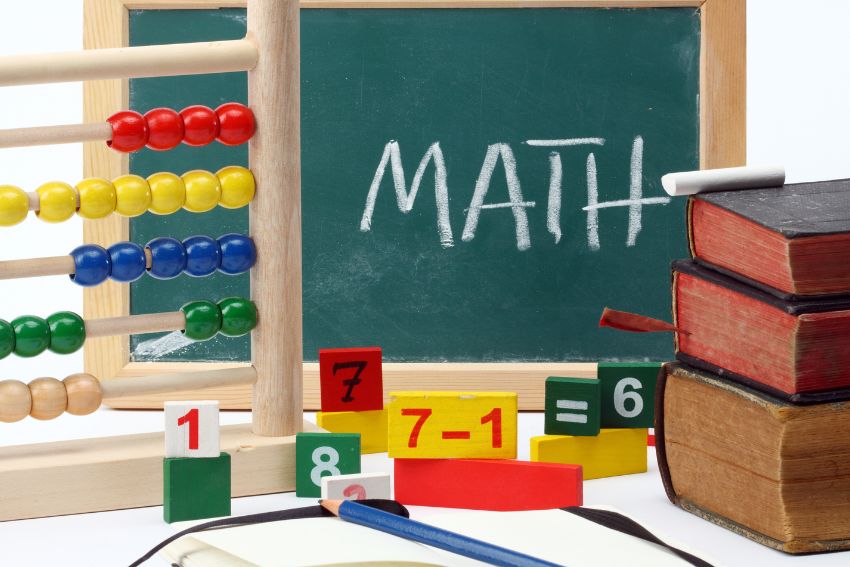Year 6 spelling plays a crucial role in a child’s literacy and overall academic success. At this stage, children are expected to master complex words, apply spelling rules, and prepare for their Key Stage 2 (KS2) spelling assessments. Strong spelling skills help improve reading comprehension and writing fluency, setting a solid foundation for secondary education.
The National Curriculum outlines a structured approach to spelling in KS2, ensuring children develop essential skills for recognising patterns, understanding word structures, and applying accurate spelling in their writing. However, many children still struggle with tricky spellings, irregular words, and commonly confused terms.
In this guide, we’ll explore how to help your child improve their Year 6 spelling, common challenges they may face, and effective strategies to boost their confidence. Let’s get started!

Understanding Year 6 Spelling Expectations
In fact, spelling in Year 6 is more than just memorising words-it’s about understanding patterns, applying rules, and building confidence in written communication. The National Curriculum sets clear expectations for what children should master at this stage.
What are Year 6 Spellings?
By the end of Key Stage 2, children are expected to spell words from the Year 5 and 6 spelling list correctly. This statutory list contains 100 commonly used but often misspelled words, such as accommodate, convenience, embarrass, and immediately. These words help children develop accuracy and fluency in writing.
Spelling Rules and Patterns
Beyond memorisation, Year 6 students must understand prefixes, suffixes, silent letters, and tricky spelling patterns. They also learn how to apply spelling rules in different contexts, ensuring they can spell new words correctly based on familiar patterns.
Moreover, mastering Year 6 spelling prepares children for secondary school and improves their ability to write clearly and effectively. Encouraging regular practice and engaging with spelling in a fun way can make a big difference in their progress.
Common Spelling Challenges in Year 6
On the other hand, many children in Year 6 struggle with spelling, even if their reading skills are strong. Spelling accuracy is essential for writing fluency, but some words and rules can be particularly tricky. Understanding Year 6 spelling problems helps parents support their child’s learning and build confidence.
Confusion with Homophones
In reality, one of the biggest challenges in KS2 spelling is mastering homophones-words that sound the same but have different meanings and spellings. Words like their, there, and they’re or your and you’re often cause confusion. Encouraging children to practice common words in sentences helps reinforce correct spelling and meaning.
Inconsistent Application of Spelling Rules
Besides, children often struggle with applying spelling rules correctly, especially when adding prefixes or suffixes. For example, while hop becomes hopping, hope becomes hoped. Knowing when to double consonants or drop vowels can be challenging. Using word lists and regular spelling activities can make these patterns easier to remember.
Difficulty with Irregular Spellings and Exceptions
Some Year 6 spelling words don’t follow typical rules, making them harder to learn. For example, words like Wednesday, necessary, and foreign don’t spell as they sound, which leads to common mistakes. A great way to improve spelling in Year 6 is by using mnemonics (e.g., “Big Elephants Can Always Understand Small Elephants” for because) to help children remember tricky spellings.
Therefore, by focusing on common words, reinforcing KS2 spelling rules, and making learning engaging, parents can help their children overcome Year 6 spelling problems and improve their writing accuracy.

Strategies to Improve Spelling in Year 6
So, helping your child master Year 6 spelling requires consistent practice and the right learning strategies. Many words can be challenging, but with the right approach, children can improve their spelling skills and gain confidence in writing. If you’re wondering how to improve spelling in Year 6, here are some effective techniques.
Regular Practice for Year 6 spelling
Also, daily spelling exercises help reinforce learning and prevent common mistakes. Encourage your child to practice spelling words by writing them down, using them in sentences, or testing themselves with flashcards. Breaking words into syllables can also make tricky spellings easier to remember.
Reading Enhancement
Additionally, strong reading skills support better spelling. When children read regularly, they are exposed to correct spellings in different contexts. Encourage them to read a variety of books, including fiction, non-fiction, and newspapers, to see words used in different ways.
Interactive Year 6 Spelling Tools
So, learning doesn’t have to be boring! Spelling games and apps make practice fun and engaging. Many online platforms provide interactive KS2 spelling activities, allowing children to learn in a playful way while reinforcing their spelling skills.
As a result, by using daily practice, reading strategies, memory aids, and interactive tools, parents can help children improve their spelling in Year 6 and build long-term confidence in their writing.
Year 6 Spelling Words for SATs
Spelling plays a key role in the Year 6 SATs, especially in the English grammar, punctuation, and spelling test (SPaG). As SATS Week 2025 approaches, it’s important for children to master their spelling list to boost their confidence and overall performance.
Why Spelling Matters in SATs
In the SPaG test, children are expected to correctly spell a variety of words, including those from the Year 5 spelling words and Year 6 spelling words for SATs. These words are chosen to test their understanding of:
- Spelling rules and patterns.
- Prefixes and suffixes.
- Commonly confused words.
- Tricky irregular spellings.
Finally, mistakes in spelling can affect overall marks, as accuracy is a crucial part of the test. Regular practice using structured spelling lists helps children improve their spelling fluency and avoid common errors.
Essential Year 6 Spelling Words for SATs
To help your child prepare, regular practice with the year 6 sats spelling list will reinforce essential words frequently tested in KS2 SATs. This list includes words from the Year 5 and 6 spelling words, covering a range of tricky spellings that students need to master.
Thus, by practising these words daily and using spelling games, reading activities, and mnemonics, children can strengthen their spelling skills and feel more confident during SATs Week 2025.

The Role of Spelling in Developing Reading Skills
Strong spelling skills are essential for building confident readers. When children can spell words correctly, they find it easier to recognise and decode unfamiliar words, improving both their reading fluency and comprehension. In Key Stage 2, developing a strong year 6 spelling foundation directly supports overall literacy skills.
How Year 6 Spelling Improves Reading Skills
Children who master spelling develop stronger reading skills, as they can quickly recognise familiar words without hesitation. Hence, this reduces the time spent sounding out words, allowing for smoother and more fluent reading.
Spelling also enhances word recognition by helping children understand common letter patterns and word structures. For example, recognising that “light,” “fight,” and “sight” share the same spelling pattern makes reading new words easier.
Decoding and Reading Comprehension
A grasp of spelling rules helps children decode unfamiliar words more effectively. When they encounter a challenging word, they can break it down into smaller, recognisable parts, making it easier to read and understand. This process improves reading comprehension and encourages children to explore more complex texts with confidence.
Consequently, by focusing on spelling practice, parents can help their children improve reading in Year 6, ensuring they develop the skills needed for a smooth transition into secondary education.
Conclusion
To sum up, mastering Year 6 spelling words is essential for improving reading skills, writing accuracy, and overall literacy development. As children progress through Key Stage 2, strong spelling skills help them feel more confident in their SATs and future learning. Regular practice with the Year 6 spelling list, combined with effective strategies like mnemonics, reading exposure, and interactive spelling tools, can make a significant difference.
In reality, parents and educators play a crucial role in supporting children’s spelling development. Using structured word lists, engaging activities, and consistent spelling practice can help children overcome common challenges and build long-term confidence. Furthermore, if your child needs extra support, working with online key stage 2 tutors can provide personalised guidance to strengthen their KS2 spelling skills.
So, encourage your child to explore words, practise regularly, and enjoy the learning process. With the right support and resources, they can develop strong spelling and reading skills, setting a solid foundation for secondary school success.
FAQs:
What are some Year 6 spellings?
Some common Year 6 spelling words include:
- accommodate
- embarrass
- necessary
- privilege
- neighbour
- recommend
- exaggerate
- guarantee
How to teach spelling to a 6-year-old?
Teaching spelling to a 6-year-old should be fun and interactive. Use:
- Phonics-based learning to sound out words.
- Word games and flashcards for practice.
- Reading aloud to expose them to correct spellings.
Tracing and writing activities to reinforce spelling patterns.
How many Year 5-6 spellings are there?
The Year 5 and 6 spelling list includes 100 statutory words outlined in the National Curriculum. These words help children develop essential spelling skills and prepare for KS2 SATs.
What are the spelling patterns for Year 5 and 6?
The Year 5 and 6 spelling patterns include:
- Prefixes and suffixes (dis-, mis-, -able, -ible).
- Silent letters (knight, doubt, solemn).
- Homophones (their/there/they’re, affect/effect).
- Tricky spellings (committee, aggressive, marvellous).
Understanding these patterns helps children apply spelling rules effectively.
How to improve spelling in Year 6?
To improve year 6 spelling, encourage:
- Daily practice with word lists.
- Reading books to reinforce correct spelling.
- Spelling games and apps for fun learning.
- Using mnemonics for tricky words.
- Breaking words into syllables to aid memorisation.
With consistent practice and support, children can master KS2 spelling and build confidence in their writing








